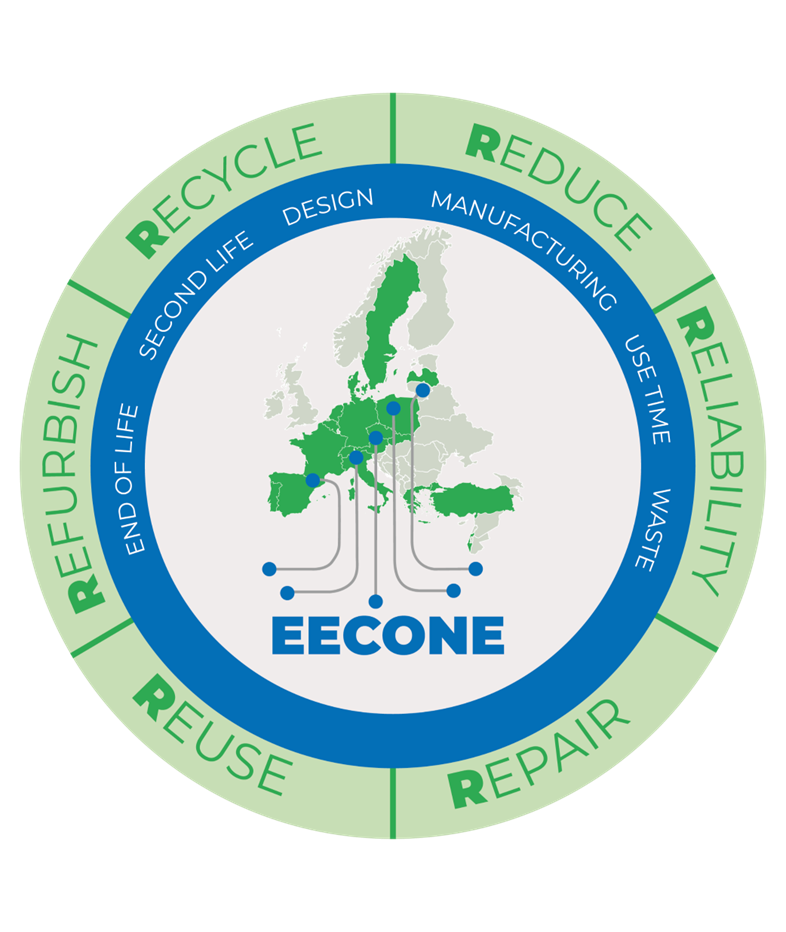The digital revolution is fueled by ever-evolving electronics, which improve the sustainability of many applications. However, this progress brings with it a growing challenge: the management of electronic waste (e-waste) which entails high costs in terms of environmental impact. In this perspective, electronics themselves must become greener throughout its entire life cycle, reducing the amount of materials required for production, becoming more reliable and ensuring components a second life through reuse and recycling.
The benefit will not only be for individual companies, but also for the entire European electronics value chain which, in the future, can be redesigned in terms of a circular economy and in line with the principles established by the Green Deal.

As part of the EECONE project, researchers at Leonardo are working, in close synergy with industry experts and the various business areas of the Group involved, to apply the concept of “sustainable electronics” within the aeronautical sector. In particular, they are focusing on the creation of an HMS (Health Monitoring System) to monitor the state of wear of aircraft through electronic sensors, designed as embedded in aeronautical structures. This innovative system collects data on any deformations of the structures and, at the same time, reduces the need for electronic components, extending the life cycle of the system.
An activity that confirms Leonardo's commitment to managing a responsible business along the entire value chain, in line with the Circular Economy Action Plan, the European Chips Act and the Critical Raw Materials Act of the European Union, crucial for a sustainable and independent European technological future.


